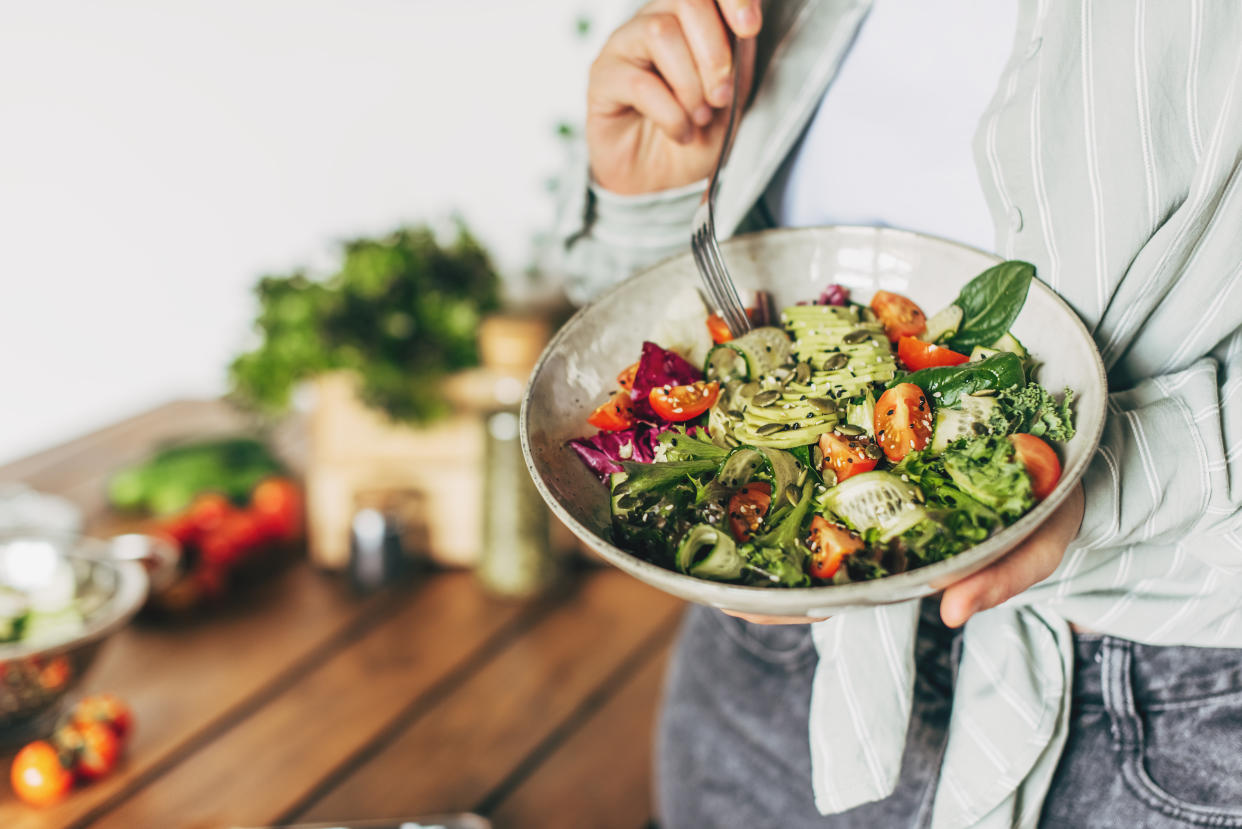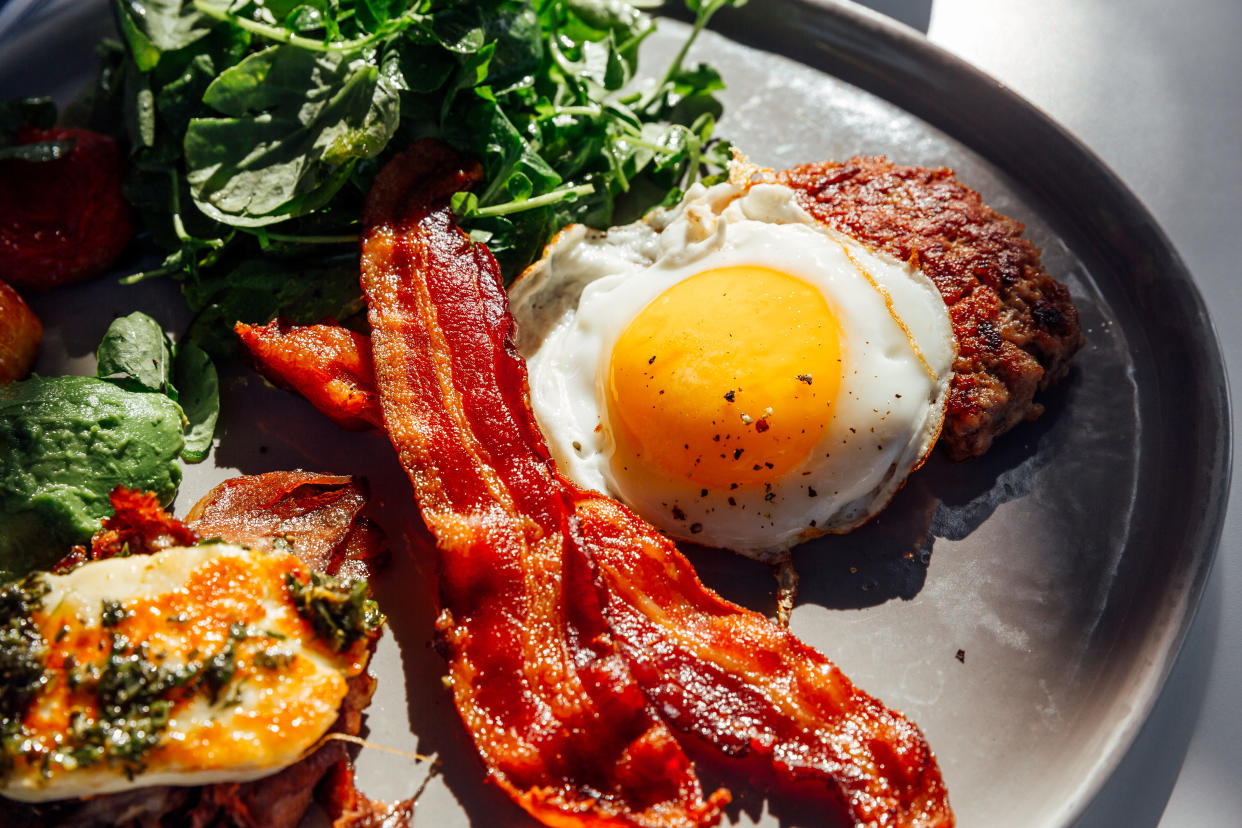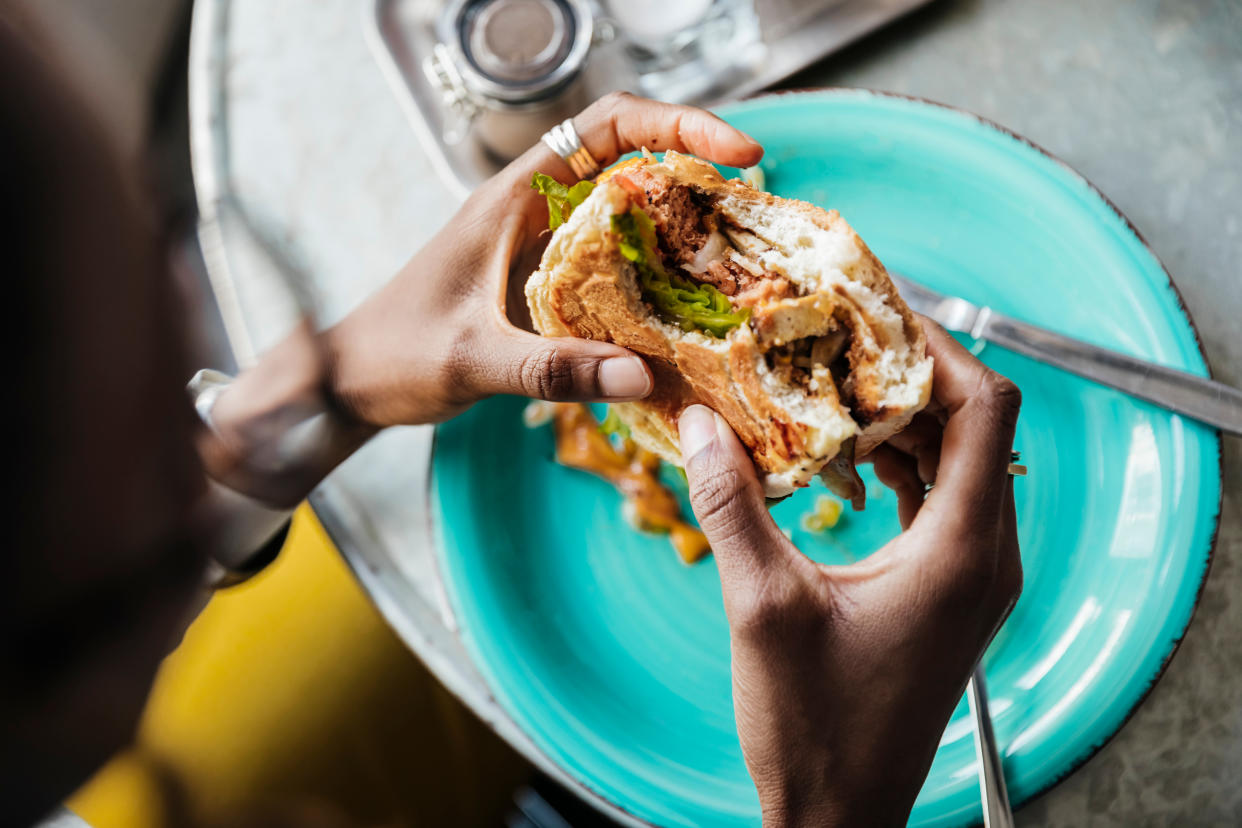Going vegan for 8 weeks can knock 'years' off your biological age

Eating a vegan diet – even just for eight weeks – could knock years off of your biological age, a new study has found.
An American team of researchers looked at 21 pairs of identical twins, with one half of each twin pair instructed to eat an omnivore diet (meat, dairy, and vegetables) and the other to eat a vegan diet for eight weeks, which includes no meat, dairy, or any animal-derived products.
The participants were an average age of 40, with a BMI of 26, and 77% of the participants were women.
The findings, published in the journal BMC Medicine, were based on levels of DNA methylation – a type of chemical modification of DNA that alters gene expression but not DNA itself.
Previous research has shown that increased DNA methylation levels are associated with ageing.
The researchers investigated the impacts of these diet on levels of DNA methylation by analysing blood samples collected from participants at the beginning of the trial, at the half way point, and at the end of the two-month study.
The team then used DNA methylation levels to infer the biological ages of participants and their organ systems.
At the end of the study the researchers found that the twins eating a vegan diet had seen a decrease in their epigenetic ageing clock, or biological age. This was not seen in those who followed the omnivore diet.
"We also observed decreases in the ages of the heart, hormone, liver, and inflammatory and metabolic systems of participants who ate a vegan, but not an omnivorous diet, for eight weeks,” Professor Christopher Gardner, of Stanford University, California, said.

The participants who ate a vegan diet also lost two kilograms (4.4lbs) more than the omnivores across the first four weeks of the study – and this weight loss could have contributed to the reduction in biological age.
How a vegan diet can decrease your biological age
“A healthy vegan diet has the potential to decrease your biological age by reducing inflammation and oxidative stress in the body,” Dorothy Woods, nutritionist, author and chef, tells Yahoo UK.
“Plant-based diets are often rich in important antioxidants, vitamins, and minerals, which support cellular health. This can lead to healthier skin, better organ function, and a reduction in age-related diseases. Whole-food rich vegan diets can also promote healthier weight and better heart health, which are key factors in maintaining youthfulness.”
Benefits and drawbacks of eating a vegan diet
Besides a potentially younger biological age, plant based chef and trained nutrition coach Lisa Marley (@lisamarleychef) says other benefits include better digestion due to the high fibre content, which can also help to maintain stable blood sugar levels.
“[Vegan diets] also tend to be rich in vitamins and minerals, which support overall health and immune function,” Marley adds. “Furthermore, a vegan diet can contribute to a lower risk of chronic diseases such as type 2 diabetes, certain cancers, and hypertension.”
However, while there are plenty of benefits, Woods says vegans need to be mindful of eating enough essential nutrients such as vitamin B12, iron, calcium, omega-3 fatty acids, and protein.

“While transitioning to a vegan diet, many may rely on vegan ‘meat’ or ‘dairy’ substitutes, which are often ultra-processed and contain additives that are not easily digestible, along with excess salt and sugar,” Woods warns.
“Initially, transitioning to a vegan diet can be expensive, especially when purchasing specialty vegan products. However, as one becomes more adept at cooking vegan foods, it can eventually lead to cost savings. Moreover, cooking from scratch can take more time, but this should also be seen as an opportunity to develop new cooking skills.”
To combat potential nutrient deficiencies, Marley recommends focus on consuming a diverse range of foods.
“Include plenty of leafy greens, legumes, nuts, seeds, and fortified foods to meet your nutritional needs. Pay special attention to sources of vitamin B12, iron, calcium, and omega-3 fatty acids. Consider taking supplements if necessary, especially for vitamin B12 and DHA/EPA omega-3s.”
How to incorporate more vegan meals into your diet
Woods says, if you’re not used to eating solely vegan meals, then you can start by replacing one or two meals a week with vegan options.
“Use whole-food proteins like beans, pulses, tofu, tempeh, and seitan instead of relying on ultra-processed meat alternatives,” she advises.
“Stock up on staples such as grains, legumes, nuts, seeds, and spices to ensure you can quickly prepare delicious meals and snacks. Planning your meals in advance can help you make balanced vegan choices more regularly. Lastly, be patient with your digestive system as it adjusts to plant-based proteins and extra fibre, especially if you experience initial discomfort.”
Additional reporting by SWNS.
Health: Read more
The one key nutrient to improve your gut health—here's how to get more of it (Yahoo Life UK, 4-min read)
How coffee can positively impact your gut health (Yahoo Life UK, 3-min read)
How alcohol impacts your gut health (Yahoo Life UK, 4-min read)


